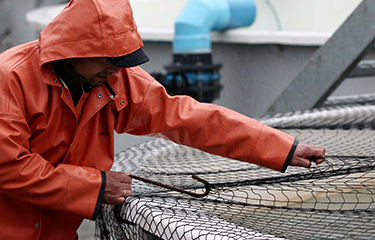Amid a strained atmosphere in Chile that has pitted environmentalists against salmon farmers, Chilean trade body SalmonChile recently released a sustainability report highlighting the economic boost its business has given the country, while also stressing its efforts at lightening its environmental footprint.
SalmonChile has published the sustainability report annually for eight years, which, according to SalmonChile President Arturo Clement, is a testament to member companies’ commitment to transparency.
“I want to emphasize the great effort they [member companies] have made to report progress in sustainability, which is a sign of the real commitment they have with environmental stewardship and the link with the environment, realizing that our activity is compatible with the environment and with the right of the people of the south [of Chile] to prosper,” he said.
In addition to economic, health, and environmental figures, the report contains data on labor, contributions to particular Chilean regions and their communities, international certifications in sustainability, and advances in investment and development.
SalmonChile underlined the sector’s exports, worth USD 6.6 billion (EUR 6.2 billion) in 2022, up 27.4 percent from 2021. The gains improved the industry's position as the country's second-largest export sector after mining.
In 2022, SalmonChile member companies made payments of more than CLP 1.8 trillion (USD 1.98 billion, EUR 1.87 billion) to small- and medium-sized suppliers that comprise the industry’s value chain – not considering payments made to food suppliers.
Meanwhile, the industry's community donations reached CLP 1.55 billion (USD 1.7 million, EUR 1.6 million) in 2022, including CLP 290 million (USD 320,000, EUR 301,000) to education initiatives, up 83 percent when compared to the previous year.
The report also highlighted the fact that salmon industry jobs in the country’s south have higher pay on average than equivalent jobs in the rest of the country, providing an important economic boost to the rural Los Lagos region, where 71 percent of sector jobs are located.
“The figures corroborate the importance of salmon farming both for the south and for the country [as a whole], given that our activity represents 2.1 percent of GDP,” Territorial Director of SalmonChile Tomás Monge said. “Our productive sector is synonymous with development, social mobility, and decentralization, and we must continue working to ensure that this contribution is maintained for future generations.”
In 2021, SalmonChile signed a clean production agreement that included measuring member companies’ carbon footprint – an indicator the trade body made public for the first time in the report.
Photo courtesy of SalmonChile








